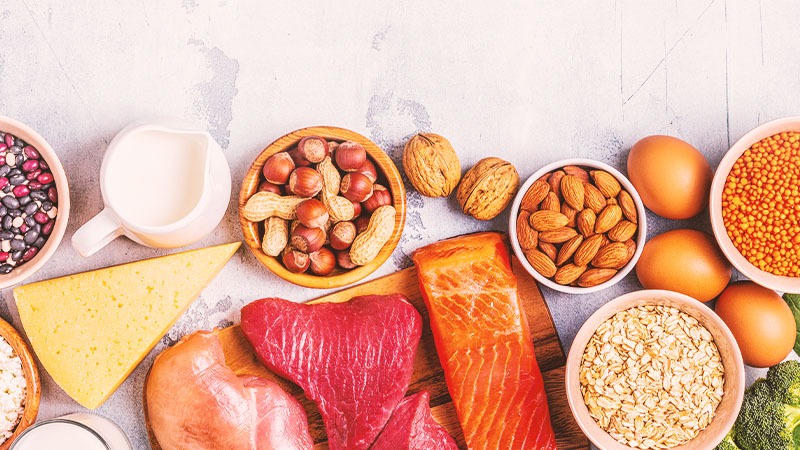Squeezing a tennis ball is easy, right? Now imagine doing it 100,000 times in a day. I bet your forearms cramp up just thinking about it.
Yet, that’s basically what your heart does every day to keep you upright … without ever cramping up or getting a rest day. That’s simply incredible when you think about it.
Of course, when we think of muscles, we focus on skeletal ones like our biceps, glutes, lats or any others we can see. However, it’s about time we start giving some more love to the muscle we can’t.
Obviously, exercise is a great start, but your diet is also a major player in keeping your heart pumping as full capacity. Here are some tips.
Eat less saturated fat
Pizza, burgers, ribs – these all may taste great, but they’re also high in saturated fat. That’s bad for your heart.
You see, your body needs healthy fats for energy and other functions. But too much saturated fat can cause cholesterol to build up in your arteries (blood vessels). Saturated fats raise your LDL cholesterol (the bad kind), which then increases your risk for heart disease and stroke.
So cut back on fatty meats and high-fat dairy products, as well as creamy sauces or gravy. Oh, and even many “healthy” protein bars and shakes are chock full of saturated fat and cholesterol. So, make sure to read the labels.
Cut down on salt
Salt may make foods taste better and last longer, but it’s also a killer on your heart.
Too much salt can cause fluid to build up around the heart and lungs, making the heart work harder. Evidence suggests that a limit of 2,000 mg per day of sodium is a good goal for people with heart failure, especially if they also have high blood pressure.
So, read labels and choose foods lower in sodium, especially when picking up canned soups, canned vegetables, packaged meals, and snack foods.
Get more fiber
Fiber doesn’t just make going to the bathroom easier. It also makes your heart’s job easier.
Soluble fiber found in oats, barley and some fruits and vegetables helps reduce LDL cholesterol. Fiber foods also reduce triglycerides, which is the type of fat that circulates in your blood. So, with less of those two things, less chance for heart disease.
Other tips
- Dairy is a tough topic we’ve discussed before. Regardless, if you enjoy dairy, stick to low fat or fat-free options
- Try to vary up your protein like fish; poultry (chicken or turkey breast without skin, or lean ground chicken or turkey); lean meats (pork shoulder, beef sirloin, or lean ground beef); beans, peas, and lentils; egg whites; unsalted nuts and seeds; and tofu
- Healthy fats and oils are great, especially from avocados and vegetable oils
- What’s in Season? June Produce Guide - June 3, 2025
- Why 10K steps a day is so important - May 19, 2025
- 3 Things Pro Athletes Know About Nutrition (and you should, too) - May 17, 2025








